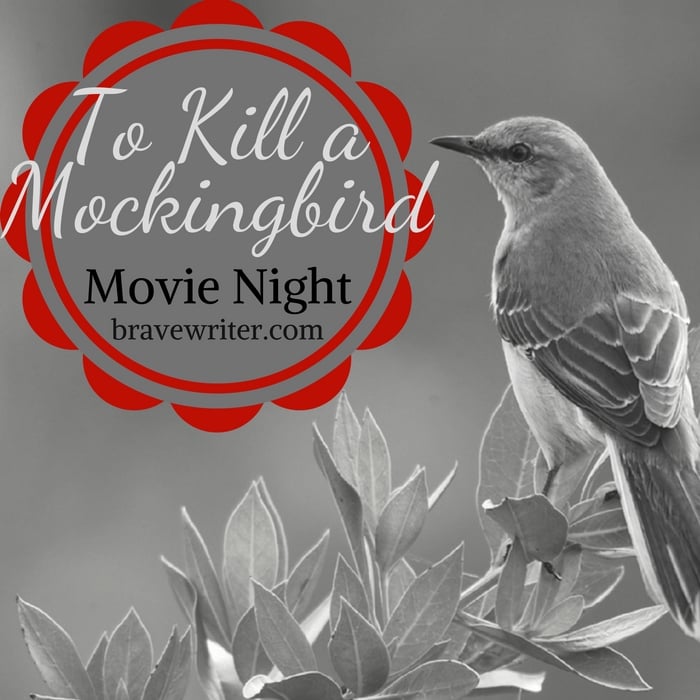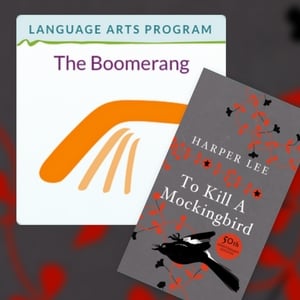Movie Wednesday: To Kill a Mockingbird

Some films are nearly universally acknowledged to be great—memorable, well made, complex films which impact the world. To Kill a Mockingbird is one of those films. It’s hard to view, with its honest depiction of prejudice and hatred and a not entirely happy ending, but it’s a rewarding watch if you persevere.
[This post contains Amazon affiliate links. When you click on those links to make purchases,
Brave Writer receives compensation at no extra cost to you. Thank you!]
Scout and Jem Finch live in a quiet town in Alabama in the 1930s. They spend their days playing with their friend Dill, swinging on their swing, and trying to catch glimpses of their reclusive neighbor Boo Radley, who only seems to leave his house at night. But their innocent life is changed forever when their father Atticus, the town lawyer, is tasked with defending a black man, Tom Robinson, accused of a horrible crime.
In a town where white people are often considered superior, Atticus knows the court will be unjust to Tom. But he’s brave enough to defend him anyway, and the resulting trial will teach Scout and Jem a lot about the adult world and how other people think.
It may be over fifty years old, but To Kill a Mockingbird is still a beautiful, important film and is considered by many to be one of the greatest ever made.
Discussion Questions
- If you’ve read the book, how do you think the film compares? What differences can you spot? How do they impact the story?
- This film is in black and white. In what ways might this make the viewing experience different from movies filmed in color?
- Atticus tells Scout: “You never really understand a person until you consider things from his point of view… Until you climb inside of his skin and walk around in it.” What do you think he means? How would someone do that?
- Atticus Finch was named the greatest film hero of the 20th century by the American Film Institute. Do you agree with that choice? What makes a hero?
- What do you think is the message of the story? The book and film first came out in the early 1960’s. Is the message still relevant today? Explain your answer.
Additional Resources
26 Foods in Alabama – Try some of these delicious popular southern dishes.
8 Inspiring Quotes from To Kill a Mockingbird – A collection of some of the most memorable quotes said by Atticus Finch.
Northern Mockingbird – Learn about the sassy bird after which the story is named.
 Learn language arts naturally with the To Kill a Mockingbird Boomerang!
Learn language arts naturally with the To Kill a Mockingbird Boomerang!
The Boomerang is a monthly digital downloadable product that features copywork and dictation passages from a specific read aloud novel. It is geared toward 8th to 10th graders (ages 12—advanced, 13-15) and is the indispensable tool for Brave Writer parents who want to teach language arts in a natural, literature-bathed context.

















